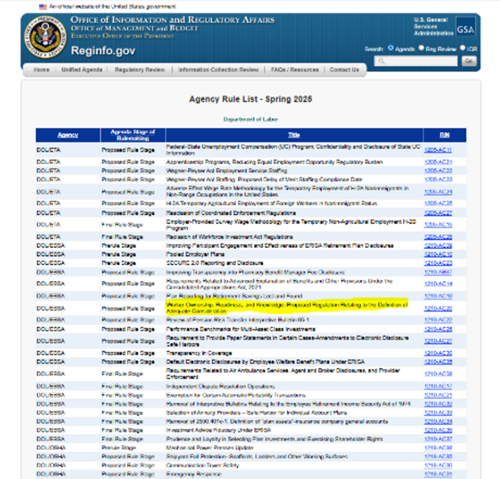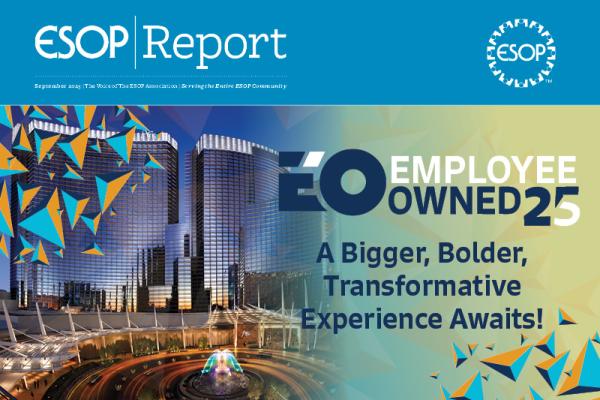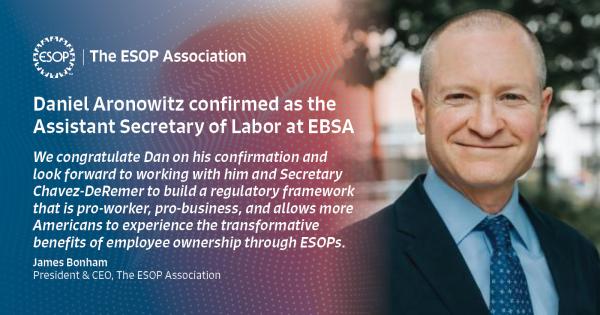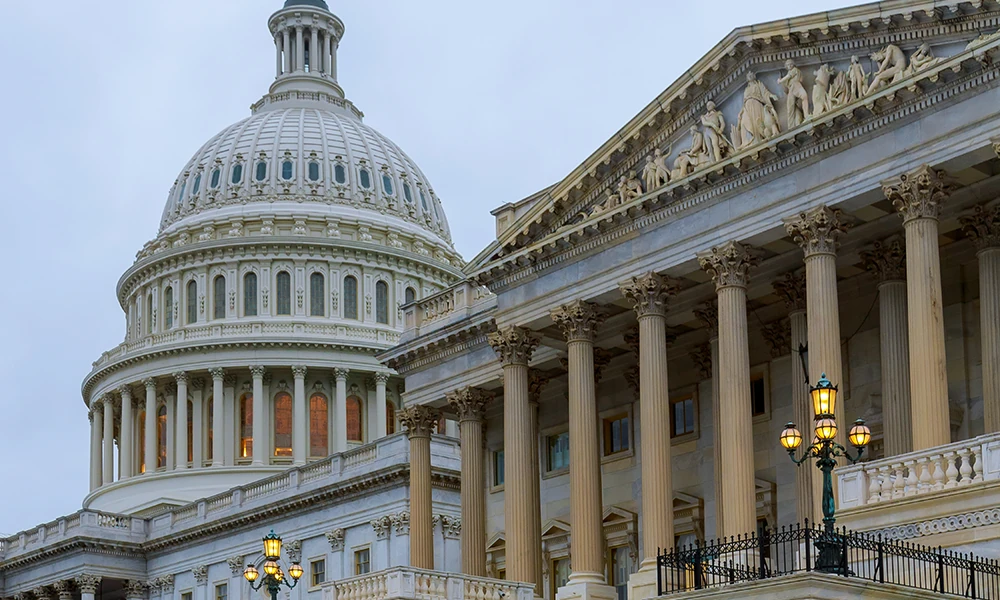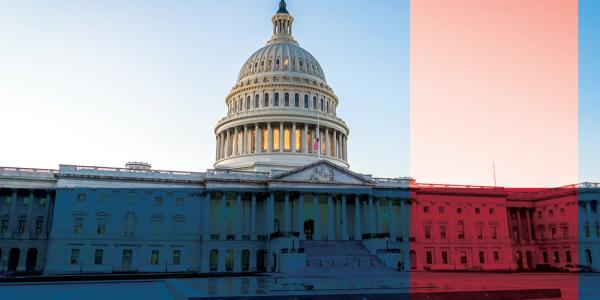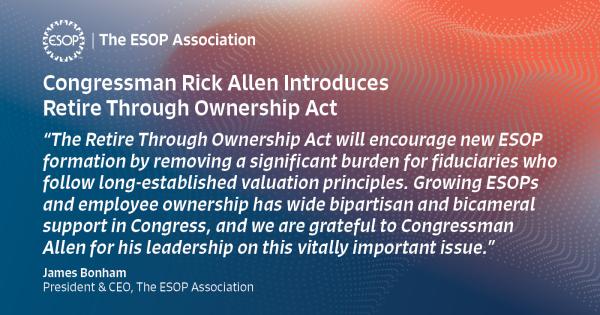Today the Office of Information and Regulatory Affairs (OIRA) within the Office of Management and Budget (OMB) released its Spring 2025 Unified Agenda of Regulatory and Deregulatory Actions, which includes the congressionally mandated rule for adequate consideration, as prescribed by the WORK Act. The Department of Labor (DOL) will now conduct a formal rulemaking, which includes a public comment period.
James Bonham, President and CEO of The ESOP Association, stated, “We are optimistic that this rule will be a great development for ESOPs, ending years of regulatory uncertainty that has led to endless lawsuits, audits, and other concerns. It’s long past time to correct this issue, so that the many benefits of employee ownership can help grow retirement security and our economy. ESOPs help workers thrive, companies compete, and communities maintain their economic stability. “
The Worker Ownership, Readiness and Knowledge (WORK), sponsored by Senators Jerry Moran (R-KS) and Bernie Sanders (I-VT), created the Employee Ownership Initiative at the DOL. It was passed into law as part of the SECURE 2.0 Act of 2022 (Section 346(c)(4)(B) of Division T of P.L. 117-328) with strong input and support from The ESOP Association. As part of this landmark ESOP legislation, a mandate was included by Congress to end 50 years of regulatory uncertainty caused by the DOL’s failure to promulgate effective regulations on this important valuation matter. The WORK Act requires the DOL, in consultation with the Department of the Treasury, to issue formal guidance on acceptable standards and procedures to establish good faith, fair market value for purposes of the adequate consideration exemption. The Biden Administration issued a draft regulation January 16, 2025, but it was almost immediately withdrawn by the Trump Administration January 20, 2025.
Bonham continued, “The Administration’s efforts to address regulatory uncertainty in this area are appreciated – for decades the lack of clear regulatory guidance combined with aggressive enforcement efforts chilled ESOP formation. Our community has been forced to rely on inconsistent and even conflicting guidance comprised of a patchwork of court cases, process agreements, settlements, prior outdated DOL missives, and even media interviews with DOL staff. This DOL can end that practice and the related lawsuits with simple, clear regulations that promote ESOPs.”
OIRA’s website can be found here: Current Unified Agenda of Regulatory and Deregulatory Actions. A screen capture of the regulatory notice is below.
